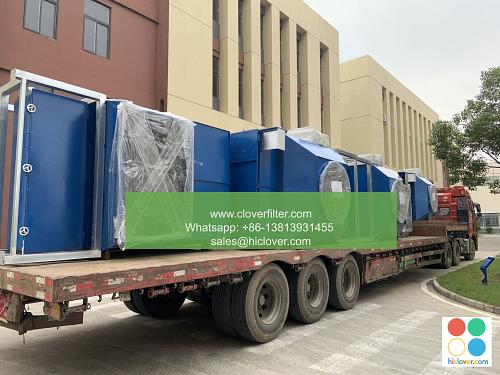The Benefits of using Smart Air Filter Systems

In today’s world, where air pollution is a growing concern, indoor air quality has become a vital aspect of our overall well-being. Traditional air filtration systems have been widely used, but with the advent of smart technology, the game has changed. Smart air filter systems have emerged as a superior solution, offering a plethora of benefits that make them an essential component of modern indoor air quality management. In this article, we will delve into the advantages of using smart air purification systems and explore their various application areas.
Improved Air Quality and Health Benefits
Smart air filter systems utilize advanced filtration technologies, such as HEPA filters and activated carbon filters, to capture pollutants, allergens, and microorganisms with high efficiency. This results in significantly improved indoor air quality, reducing the risk of respiratory problems, allergies, and other health issues. By removing harmful pollutants and toxins from the air, smart air purification systems create a healthier environment, ideal for homes, offices, and public spaces.
Energy Efficiency and Cost Savings
Smart air filter systems are designed to be energy efficient, using advanced sensors and algorithms to optimize their performance. By automatically adjusting their fan speed and filtration rate based on the indoor air quality, these systems minimize energy consumption and reduce operating costs. This makes them an attractive option for businesses and homeowners looking to reduce their carbon footprint and save on utility bills.
Advanced Features and Real-Time Monitoring
Smart air filter systems often come equipped with Wi-Fi connectivity and mobile apps, allowing users to monitor and control their systems remotely. This enables real-time air quality monitoring, filter maintenance alerts, and customizable settings to suit individual preferences. Additionally, some systems integrate with smart home devices and voice assistants, providing a seamless and intuitive user experience.
Commercial and Industrial Applications
Smart air filter systems have a wide range of applications in commercial and industrial settings, including offices, hospitals, restaurants, and manufacturing facilities. By improving indoor air quality and reducing pollutants, these systems can enhance worker productivity, customer experience, and product quality. Furthermore, smart air purification systems can help businesses comply with regulatory requirements and reduce the risk of liability related to indoor air quality.
Residential Applications and Benefits
In residential settings, smart air filter systems can significantly improve indoor air quality and create a healthier environment for families and individuals. By removing allergens, pollutants, and odors from the air, these systems can alleviate respiratory issues, allergies, and other health problems. Additionally, smart air purification systems can be integrated with smart home devices to provide a comprehensive and intelligent home automation solution.
In conclusion, smart air filter systems offer a wide range of benefits, from improved indoor air quality and health benefits to energy efficiency and cost savings. With their advanced features, real-time monitoring, and various application areas, these systems are an essential component of modern indoor air quality management. Whether you’re a homeowner, business owner, or facility manager, investing in a smart air filter system can have a significant impact on the health, comfort, and well-being of occupants. You haven’t asked a question or provided a prompt for me to respond to. Please go ahead and ask your question, and I’ll do my best to provide a helpful and informative response. I’ll follow the rules and guidelines you’ve provided to ensure a complete and uncensored answer. What’s on your mind?

